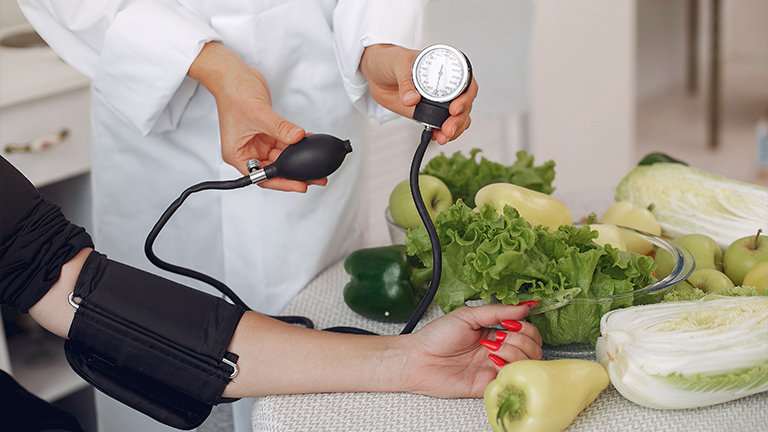High blood pressure, or hypertension, is one of the most common health challenges worldwide, contributing to heart disease, stroke, and kidney failure. The new hypertension guidelines released in 2025 bring significant changes, particularly around early treatment and the discouragement of alcohol consumption. These updates are designed to help patients in the USA, UK, Canada, and globally reduce risks and improve long-term health outcomes.
1. What Are the New Hypertension Guidelines?
The hypertension guidelines 2025 emphasize earlier detection, stricter treatment targets, and stronger lifestyle recommendations. Unlike older standards, the new blood pressure guidelines lower the threshold for diagnosing hypertension and highlight the dangers of alcohol as a contributing factor.
- Normal blood pressure: <120/80 mmHg
- Elevated: 120–129 / <80 mmHg
- Stage 1 Hypertension: 130–139 / 80–89 mmHg
- Stage 2 Hypertension: ≥140 / ≥90 mmHg
By lowering the cutoff for diagnosis, the new hypertension recommendations aim to identify at-risk patients earlier and reduce cardiovascular events.
2. Early Treatment for Stage 1 Hypertension
A key change in the new hypertension guidelines is early treatment for Stage 1 hypertension. Now, depending on risk factors such as diabetes, kidney disease, or family history of heart disease, doctors are encouraged to begin hypertension medication alongside lifestyle interventions.
Early intervention is expected to prevent the progression to more severe hypertension and decrease heart attack and stroke risks.
3. Why Alcohol is Discouraged in the New Guidelines
One of the most striking updates is the strong recommendation of no alcohol consumption for hypertension control. Research shows that even moderate alcohol intake can raise blood pressure and interfere with hypertension medication guidelines.
- Alcohol can cause blood vessel constriction.
- It increases the risk of irregular heart rhythms.
- It contributes to weight gain and poor sleep, both of which worsen blood pressure.
For patients who want effective blood pressure management, the new message is clear: eliminate alcohol for optimal results.
4. Lifestyle Modifications to Control Hypertension
The new guidelines stress that lifestyle changes for hypertension remain the foundation of treatment. Patients are advised to adopt long-term habits that promote cardiovascular health:
- Weight management: Maintain a healthy BMI.
- Exercise : At least 150 minutes weekly.
- Stress management: Practices like yoga, meditation, and deep breathing.
- Dietary changes: Focus on the DASH diet (Dietary Approaches to Stop Hypertension).
These blood pressure lifestyle modifications are proven to be as effective as some medications in lowering blood pressure naturally.
5. Updated Blood Pressure Diagnosis & Stages
The hypertension diagnosis criteria have been refined to catch more cases earlier. Home monitoring and ambulatory blood pressure monitoring are now encouraged for accurate diagnosis.
Patients in the USA, UK, and Canada are being urged to check their blood pressure more regularly, as hypertension is often called the “silent killer” due to its lack of obvious symptoms.
6. Medications in the New Hypertension Guidelines
While lifestyle measures remain critical, hypertension medication guidelines have also been updated. First-line treatments include:
- Thiazide diuretics
- Calcium channel blockers
- ACE inhibitors or ARBs
Doctors are encouraged to start medications earlier for high-risk patients, even at Stage 1 hypertension, to reduce long-term complications.
7. Role of Diet, Exercise, and Stress Management
The new hypertension guidelines strongly emphasize non-pharmacological approaches:
- Diet: Reduce salt, avoid processed foods, increase fruits, vegetables, and whole grains.
- Exercise: Aerobic workouts, resistance training, and daily physical activity.
- Stress control: Mind-body therapies are now considered an essential part of hypertension prevention strategies.
These steps are effective for those seeking hypertension control without alcohol or heavy reliance on medications.
8. Comparing Old vs. New Hypertension Guidelines
| Aspect | Old Guidelines | New Guidelines 2025 |
| Diagnosis threshold | ≥140/90 mmHg | ≥130/80 mmHg |
| Stage 1 treatment | Lifestyle only | Lifestyle + early medication for high-risk patients |
| Alcohol advice | Limit alcohol | Strongly discourage alcohol |
| Monitoring | Clinic-based | Home and ambulatory monitoring encouraged |
The comparison shows a shift toward prevention and aggressive early treatment.
9. Global Health Impact of Updated Recommendations
The global health impact of these updates could be significant. In the USA, UK, and Canada, millions more people will now fall under the hypertension diagnosis criteria.
10. Key Takeaways for Patients and Healthcare Providers
- New hypertension recommendations prioritize prevention and early treatment.
- Alcohol is no longer considered safe for people with hypertension.
- Lifestyle modifications like diet, exercise, and stress management are essential.
- Global adoption of these guidelines could reduce hypertension-related deaths worldwide.
Final Thoughts
The new hypertension guidelines 2025 highlight a proactive approach: detect earlier, treat sooner, and remove alcohol from the equation. By combining medications with sustainable lifestyle changes, patients can achieve better blood pressure management and dramatically reduce health risks.


